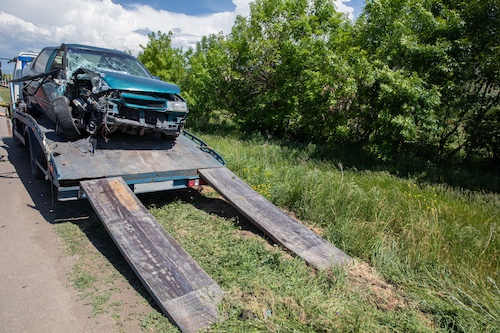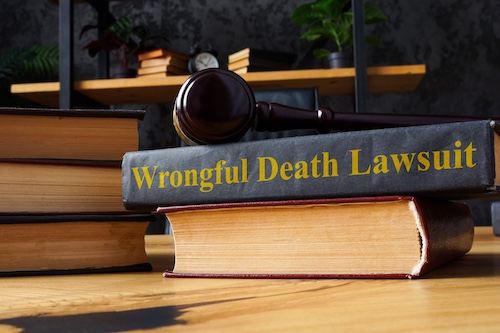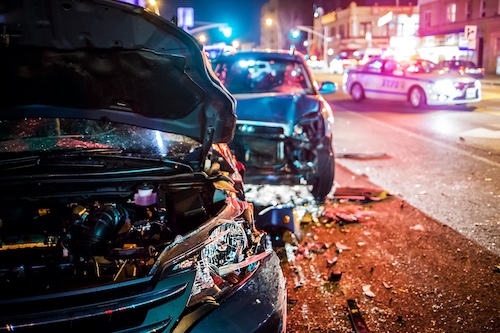Wrongful Death Car Accident: Understanding Your Rights in North Carolina
At Mogy Law, our focus is on helping clients after car accidents and other motor vehicle collisions. Based in North Carolina with offices in Raleigh, Charlotte, and Winston-Salem, the firm pursues justice for victims of negligence while charging only a 25 percent contingency fee. Clients can rely on our experience in handling wrongful death claims, drunk driving cases, truck accidents, and rideshare crashes. The goal is simple: secure fair compensation and reduce the stress families face after a serious accident.
Losing a loved one in a wrongful death car accident is devastating, and surviving family members are often left with grief, unanswered questions, and financial strain. North Carolina law provides a path for the decedent’s estate to file a wrongful death claim on behalf of survivors, allowing them to seek compensation for medical expenses, funeral costs, lost income, and emotional losses.
With strict rules under the state’s wrongful death statute, having the guidance of a skilled Raleigh car accident lawyer is critical to protect the family’s rights and pursue justice in court.
What Is a Wrongful Death Car Accident?
A wrongful death car accident occurs when a person dies in a motor vehicle accident caused by the negligent or reckless actions of another driver. This type of claim allows the decedent’s estate to seek compensation on behalf of surviving family members. Under North Carolina law, wrongful death cases are controlled by N.C. Gen. Stat. § 28A-18-2, which is the state’s wrongful death statute.
Definition Under North Carolina Law
A wrongful death claim is a legal action that arises when the decedent’s death results from negligence, a wrongful act, or default that would have allowed the person to file a personal injury lawsuit if they had survived. In a wrongful death car accident, the defendants are often drivers who acted carelessly, such as by speeding, distracted driving, or driving under the influence.
Who Brings the Claim
The wrongful death statute requires that the claim be filed by the personal representative of the decedent’s estate. This representative acts on behalf of family members, such as a spouse, children, or other next of kin, to protect their right to recover damages.
Difference Between Wrongful Death and Survival Claims
Wrongful death claims focus on losses suffered by surviving family members, including funeral expenses, loss of income, and loss of companionship. A survival claim is different because it seeks damages related to the decedent’s pain and suffering before dying, as well as medical expenses tied to their injuries. Both claims may be pursued together in court.
Who Can File a Wrongful Death Claim in North Carolina?
In North Carolina, not every family member can directly file a wrongful death claim after a car accident. The law assigns this responsibility to the personal representative of the decedent’s estate. This rule ensures that wrongful death cases are handled in a consistent and fair way.
Role of the Personal Representative
The wrongful death statute states that the claim must be filed by the personal representative. This person is usually the executor named in the decedent’s will. If there is no will, the court appoints an administrator to serve in this role. The personal representative has the legal authority to act on behalf of surviving family members when filing the lawsuit.
Who Benefits From the Claim
Even though the personal representative files the claim, the compensation is meant for the decedent’s survivors. Family members who may benefit include the spouse, children, and sometimes parents or siblings, depending on the decedent’s estate and North Carolina intestate succession laws. This structure ensures that wrongful death damages are distributed to those most affected by the decedent’s death.
Time Limit for Filing
North Carolina law places a time limit on wrongful death claims. The personal representative must file the lawsuit within two years of the decedent’s death. If the claim is not filed within this period, surviving family members lose the right to recover damages. Acting quickly with the help of a car accident attorney protects the family’s rights and ensures the case can proceed in court.
Types of Compensation Available in Wrongful Death Cases
When a wrongful death car accident occurs, the law allows the decedent’s estate to pursue compensation for losses suffered by both the estate and surviving family members. These damages cover both financial costs and human losses.
Economic Damages
Economic damages include direct financial losses that result from the decedent’s death. These may include medical bills related to the accident, funeral and burial expenses, and the income the decedent would have earned had they lived. Courts may also consider the value of services the decedent provided to the household, such as childcare or support for dependents.
Non-Economic Damages
Non-economic damages address the personal impact of the loss. This may include the decedent’s pain and suffering before death, as well as the loss of companionship, guidance, and protection for family members. These damages recognize the emotional toll on survivors even though they are harder to measure than financial costs.
Punitive Damages
Punitive damages may be awarded in wrongful death cases when the driver’s actions were especially reckless or intentional, such as in cases of drunk driving. These damages are not meant to compensate survivors directly but to punish the defendant and discourage similar behavior in the future.
How Compensation Is Distributed
In North Carolina wrongful death cases, compensation does not go directly to the person who files the lawsuit. Instead, the money is paid to the decedent’s estate and then distributed to surviving family members according to state law.
Role of the Estate
The wrongful death statute requires that any damages recovered belong first to the decedent’s estate. The personal representative manages the lawsuit and collects damages on behalf of survivors. These funds are then divided based on North Carolina’s intestate succession rules unless a valid will states otherwise.
Distribution to Surviving Family Members
Surviving family members such as a spouse, children, or parents may receive compensation. If the decedent had no immediate family, siblings or other next of kin may be eligible. The goal of this system is to protect family members who suffered the most from the decedent’s death.
Limits on Estate Debts
Most debts of the estate do not reduce wrongful death damages. Funeral costs and legal expenses may be paid from the recovery, but general creditors cannot claim this money. This rule ensures that compensation remains available to survivors rather than being lost to outside claims.
Challenges in Wrongful Death Claims
Wrongful death cases from car accidents can be difficult for surviving family members. Proving negligence, meeting legal requirements, and handling insurers often create obstacles that require legal guidance.
Proving Negligence
The estate must show that the defendant’s actions caused the decedent’s death. Evidence may include police reports, witness testimony, and expert analysis of the collision. Without strong proof, it becomes harder for the court to hold the accused driver responsible.
Dealing With Insurers
Insurance companies often try to limit what they pay in wrongful death cases. They may question the extent of the damages or argue over fault in the motor vehicle accident. Survivors may struggle to respond without the assistance of a car accident attorney who understands how insurers operate.
Emotional Burden on Survivors
Family members grieving the decedent’s death may find it painful to review details of the accident. They may need to testify in court, provide records, or answer questions about their loss. This adds emotional strain to an already difficult process.
Time Limits and Court Procedures
The personal representative must file the wrongful death claim within two years of the decedent’s death under North Carolina law. Missing this deadline ends the right to recover damages. Strict court procedures and rules of evidence also shape how the lawsuit proceeds, making experienced counsel essential.
Why You Need a Car Accident Lawyer
A wrongful death car accident creates legal issues that surviving family members should not face alone. A car accident lawyer provides the knowledge and support needed to protect the estate’s rights and secure fair compensation.
Investigating the Accident
A car accident attorney gathers the evidence needed to prove negligence. This may include police reports, photos of the collision, medical records, and statements from witnesses. Strong evidence helps the court or insurer determine fault and the value of wrongful death damages.
Filing the Lawsuit
Wrongful death claims must follow strict rules under North Carolina law. A lawyer prepares and files the lawsuit on behalf of the personal representative of the decedent’s estate. This ensures the case meets deadlines and legal standards.
Negotiating With Insurers
Insurers often try to reduce what they pay in wrongful death cases. A car accident lawyer understands these tactics and negotiates for full compensation. This includes medical expenses, funeral costs, lost income, and pain and suffering damages for the decedent and survivors.
Representing the Family in Court
If the insurer refuses to settle, the case may proceed to trial. A car accident attorney presents evidence, questions witnesses, and argues for the family’s right to recover damages. Legal counsel gives survivors a stronger chance of success in court.
Contact Mogy Law After a Wrongful Death Car Accident!
If your family has lost a loved one in a wrongful death car accident, you do not have to face insurers or the court system alone. Our team at Mogy Law is ready to protect your rights, pursue full compensation, and guide you through every step of the wrongful death claim process.
Contact us at (901) 443-9133 for a free case consultation today!








